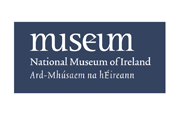Times Gone By 1907
Oughterard Newsletter December 2006
Mary Kyne
I was disappointed to find, when scanning through the first edition of the Connacht Tribune, printed in 1909, that very little news on Oughterard was recorded. However, I did find out in August of that year races were held at Waterfield.
Racing at Waterfield
The number of horses who faced the starter was small and in no case exceeded four, although there were as many as nineteen entered on the programme for some events. Much dissatisfaction was expressed as to the arrangements. The colours of the jockeys were not given on the programme and this was considered a great inconvenience.
Five races were held – the Farriers Plate, the Stewards Plate, the Lemonfield Plate, the Oughterard Plate, and the Ladies Plate. The first prize money varied from £5 to £10, second received £2 and third £1. The length of races varied also from 1 to 2½ miles on the flat, with a handicap hurdle race of 2 miles also being included.
Stewards for the day included Lord Killanin, Thomas Naughton, Henry Gascoigne, L. D’Arcy, E. J. McDermott, RM, James Byrnes, R. E. Willis, JP, T. D. Lawson, T. F. Naughton, H. Ferguson, M. Acton, P. Glynn, N. Egan, Michael Mons, John Power, K. O. Brien, MD, Thomas Toole, and Michael Darcy. It would appear from such a long list of stewards that there was no shortage of voluntary support. Officials for this meeting were: Judge – E. J. Madden; Starter – W. Donnellan; Clerk of Scales and Handicapper – John Joyce; Clerks of Course – Michael D’Arcy, J. Power, & T. Toole; Tres. – J. P. O’Flahertie; Sec. – G. Roe.
“Cannonball”, the famous horse from Leam owned by J. H. Toole took part but did not finish in the Farriers Plate as the jockey fell on the second round of the course. Other horses to race on the day were Michael Darcy’s “Little Charlie”, M. P. Burke’s “Golden Rule”, Mr. T. Lyons’ “Little Annie”, Mr. James McCullagh’s “Tricky Girl”, Mr. John Sheridan’s “Railway Girl”, and Mr. M. Devilly’s “Headford Boy”.
Controversy surrounded the last race of the day, the Oughterard Plate, when “Railway Boy” and “Dairy Maid”, owned by Mr. Cruise, kept the lead for the first round. On the second round “Railway Boy” took the lead from “Dairy Maid” and kept it until the judges’ stand was reached. “Dairy Maid” was a long way behind. The officials and stewards decided, after a long delay, that “Dairy Maid” was entitled to the race owing, it was said, to “Railway Boy” jumping the wing of the fence. Mr. Walsh, the owner of “Railway Boy”, took all his horses from the meeting on this decision being given.
Fairs
Farmers will be interested to know that at the August Fair of 1909 three-year-old bullocks and heifers fetched from £9 to £12, two-year-olds £7 to £9, yearlings £4 to £6, and suckling calves realized from £1.15s to £2. Sheep realized from £1.5s to £1.15s and fat lambs sold at from 17 to 22 shillings. Milch cows exchanged hands at from £3.10s to £10.10s.
Deaths
The death was recorded of Mrs. Naughton of Glengowla, who was much esteemed in the locality and who was the mother of Miss Naughton, assistant teacher at Leam N.S. The death of Mr. Martin O’Holleran, a poor law representative, who was a most generous benefactor in all that concerned the welfare of the people of the neighbourhood occurred in September, 1909. Mr. J. H. Joyce also died at the Mater Hospital on May 29 th. The remains were brought by early train to Oughterard where Mass was celebrated by Rev. M. D. Conroy, PP, Lisdoonvarna.
Mission
In that year the mission was promoted by the St. Patrick’s Temperance League of the West and it was, according to reports, a gratifying success. Large crowds of the faithful flocked to the Church and the most intense piety was everywhere noticeable. The Mission was conducted by Rev. Father Turner, of the Redemptorist Order, whose eloquent and touching discourses on the ‘drink evil’ made a profound impression on those who had an opportunity of hearing him.
Oughterard District Council, Saturday, November 6th, 1909
This meeting was presided over by Mr. P. J. O’Malley, JP. Present at the meeting were Mr. J. P. O’Flahertie, JP, T. Fahy-Naughton, Mark Geoghegan, Michael Walsh, H. Dudley Hodgson, JP, Thomas Toole, P. O’Connor, Walter McDonagh, and Michael McEvilly.
Contracts
The interesting item discussed at this meeting was that various contracts and re-construction works were granted to the following people:
1. Mr. Thomas Lyons was given the contract for the building of a concrete bridge to the junction of Bunakle for £10.
2. Thomas Lyons was also declared contract for the repairing of causeway and protection wall at Maam Cross at £20.
3. Stephen Darcy was given the contract for a new footpath for £7. (It doesn’t state in the report the exact location of the footpath.)
4. M. O’Malley and James O’Toole both got contracts to make gulleys at Maam for £3 snf Gortmore for £5.
MGW Railway
A letter was read from the Midland Great Western Railway Company who wrote, in reply to the resolution of the Council with reference to the 2:30 pm train from Galway to Clifden, stating that they had given it earnest consideration, but regretted that they could not alter the hour of this train, as it was run in conjunction with the 9 o’clock train, and the delay would lead to great inconvenience for passengers at the other stations. The Chairman said that the Connemara people were more entitled to consideration than other people. Mr. O’Toole agreed that the people who used it most were entitled to be considered and he added, “This place is shockingly cold sometimes.” A letter was sent to the company requesting them to alter the time.
Obstruction
It would appear that in 1909 drains ran down through the streets of Oughterard, because a Miss Honor O’Holloran took action against the Council because a blocked drain caused her house to be continually flooded. and, according to her, kept the customers out of her shop.
Councillors and Teachers’ Rights
The Clerk read a long resolution from the Irish National Teachers’ Executive calling for civil rights. Mr. Fahy-Naughton asked what was meant by civil rights and suggested that maybe they had too much rights. This apparently caused great laughter. The clerk thought it meant that they were looking for the right to vote at Parliamentary and Local Government elections. (Of course, they had that right in 1909.) Other members thought they were trying to become members of Boards of Guardians, District Councils, and County Councils. Mr. P. O’Connor then said, “Oh, then we won’t have that from them, anyway. We are bad enough as it is, but if they come in, God knows …” The Chairman said, “They are just as well off as they are. Let them stick to their jobs which pay them.” This statement received a ‘hear, hear’ from the council members. In conclusion Mr. O’Connor said they should mind their children. The Chairman asked, “What will we do with this resolution then?” Mr. Fahy-Naughton replied, “It is rigmarole! Mark it ‘read’. The resolution was marked ‘read’. (Note: This is obviously one way of dispensing with a tricky problem.)
Labourers’ Cottage Laws
Applications for labourers’ cottages were also received. The rent was fixed at 1s 6p a week for ahouse with an acre of land or 1s a week for a house with a little land. The labourers were obliged to forward the rent to the Clerk, thus saving themselves 10% for collection.
I hope you enjoyed this little glimpse of the past.









No Comments
Add a comment about this page